Projects Archive – Public Data Lab
All projects
-

Repurposing Web Archives
How do researchers, journalists and artists work with web archives? What kinds of tools, methods and approaches do they use? What other kinds of tools might support critical and creative repurposing of archived web materials? This project explores how web archives are used by researchers and practitioners. Drawing on previous collaborations around critical technical practices […]
-
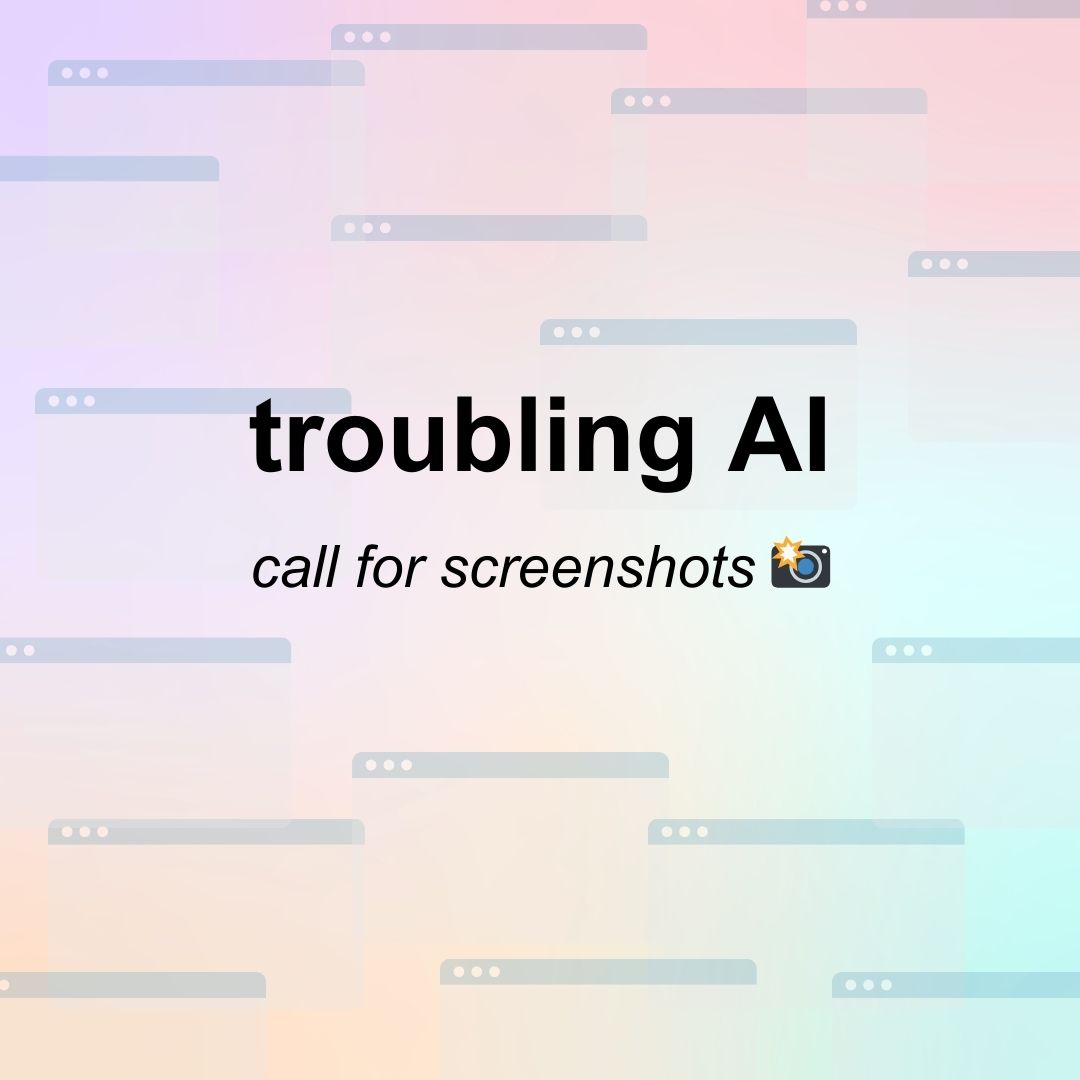
troubling AI
This collaboration explores different ways of troubling AI – beginning with screenshotting as method. Screenshots have accordingly become a prominent method for documenting and sharing AI’s injustices and other AI troubles – from researchers studying racist search results to customers capturing swearing chatbots, from artists exploring algorithmic culture to social media users publicising bias. Through an open call and online workshop, […]
-
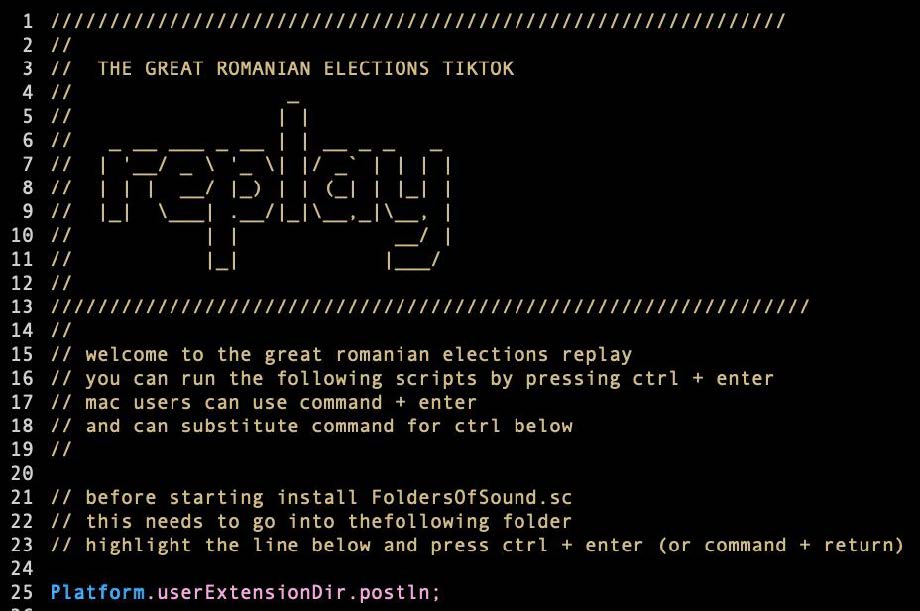
TikTok and the Romanian Presidential Election
In December 2024, the European Commission launched an investigation following “serious indications that foreign actors interfered in the Romanian presidential elections using TikTok.” The elections have been described as a “first big test” for “Europe’s digital police” and the Digital Services Act. This ongoing research project investigates the role of TikTok during the 2024 Romanian […]
-

🇧🇷 Digital Methods in Brazil
The project Digital Methods in Brazil explores emerging creative approaches that harness the web, its technologies, and data to tackle research questions. It investigates which digital methods are being adopted, their purposes, and their significance for understanding digital media and culture. It also examines who is developing research software to study digital culture. This project […]
-

forestscapes
How can soundscapes be used as a way to attend to forest life and the many different ways of narrating and relating to forests, forest issues and forest protection and restoration efforts? The forestscapes project aims to explore and document generative arts-based methods for recomposing collections of sound materials to support “collective inquiry” into forests […]
-

Pluralising Critical Technical Practices
A gathering and reconsideration of critical technical practices in digital research and beyond. Contributions published in a special issue in Convergence: The International Journal of Research into New Media Technologies. If you’re interested in critical technical practices and you’d like to follow work in this area, we’ve set up a mailing list here for sharing […]
-

Forest Media Practices
A collaboration with the European Forest Institute exploring how arts- and humanities-based digital methods can be used to understand forest issues and to explore engagement around reforestation. Undertaken as part of the SUPERB project on upscaling forest restoration. This is an ongoing research project and materials will be listed here when they are available.
-
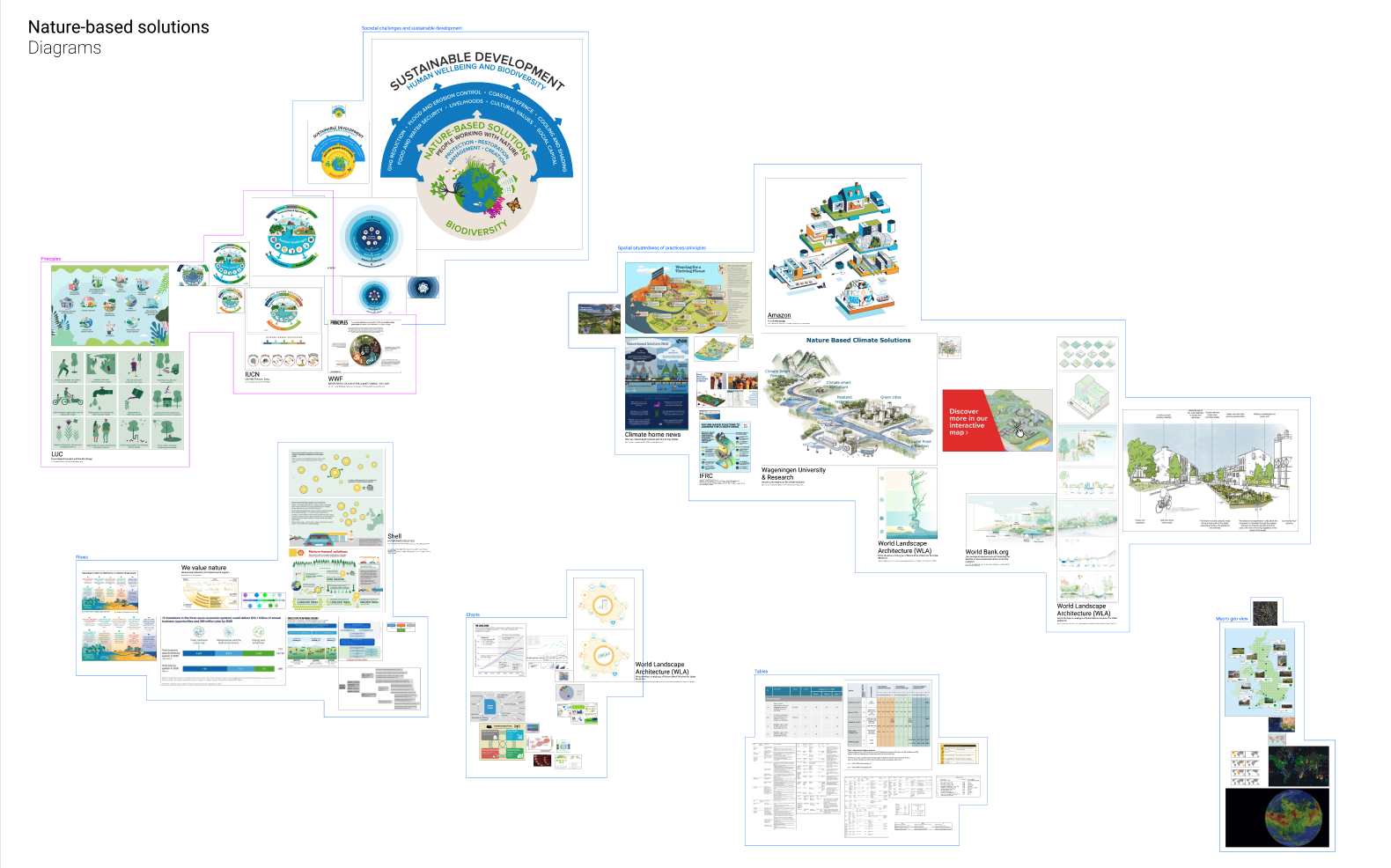
Mapping the Politics of Nature-Based Solutions
Over the past decade “nature-based solutions” have risen to prominence as part of international commitments to addressing different kinds of societal issues and public problems including climate change, biodiversity loss, well being, disaster reduction and economic development. In this collaborative digital methods project we gather and repurpose online materials associated with “nature-based solutions” on a […]
-

Profiling Bolsobot Networks
How to capture the operation of political bots networks? Which types of accounts compose bot ecologies? How do bots promote content? To what extent do platform moderation policies impact bots’ activities over time? How does inauthentic activity change as content moderation measures refine their capture of bots and other “platform manipulations”? This project gathers and […]
-

East and Southeast Asians: Documenting a Category in the Making
In collaboration with organisations involved in its development and promotion, the aim of this project is to critically document and analyse the making of a new collective ethnic identifier in the United Kingdom: “East and Southeast Asian” (ESEA). The term ESEA has emerged relatively recently in the UK, coming to prominence since 2018. This term is typically used […]
-
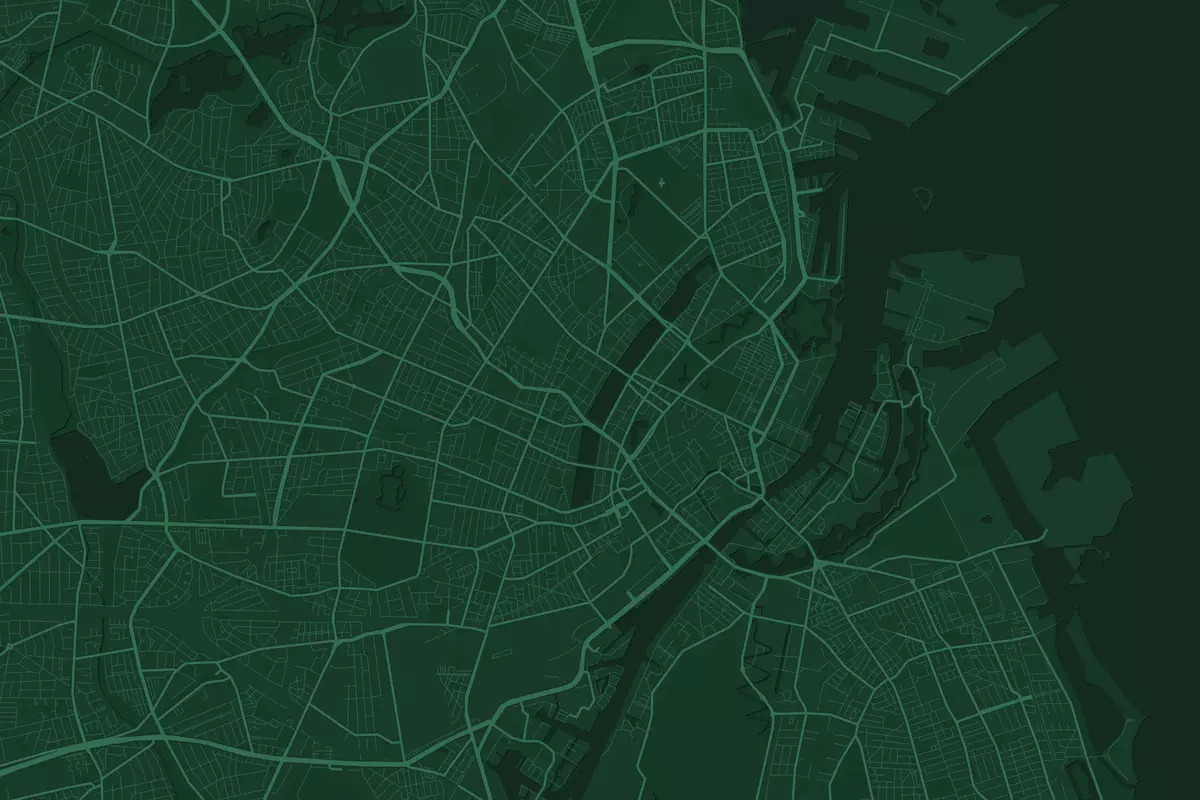
The Urban Belonging Project
In the Urban Belonging project, urban planners and humanities scholars work closely together with local community partners in Copenhagen to explore how different people perceive and experience the city as a place of belonging. The project involves the design of an app for tracing and visualizing urban attachments and a methodology for working with this data in participatory settings […]
-
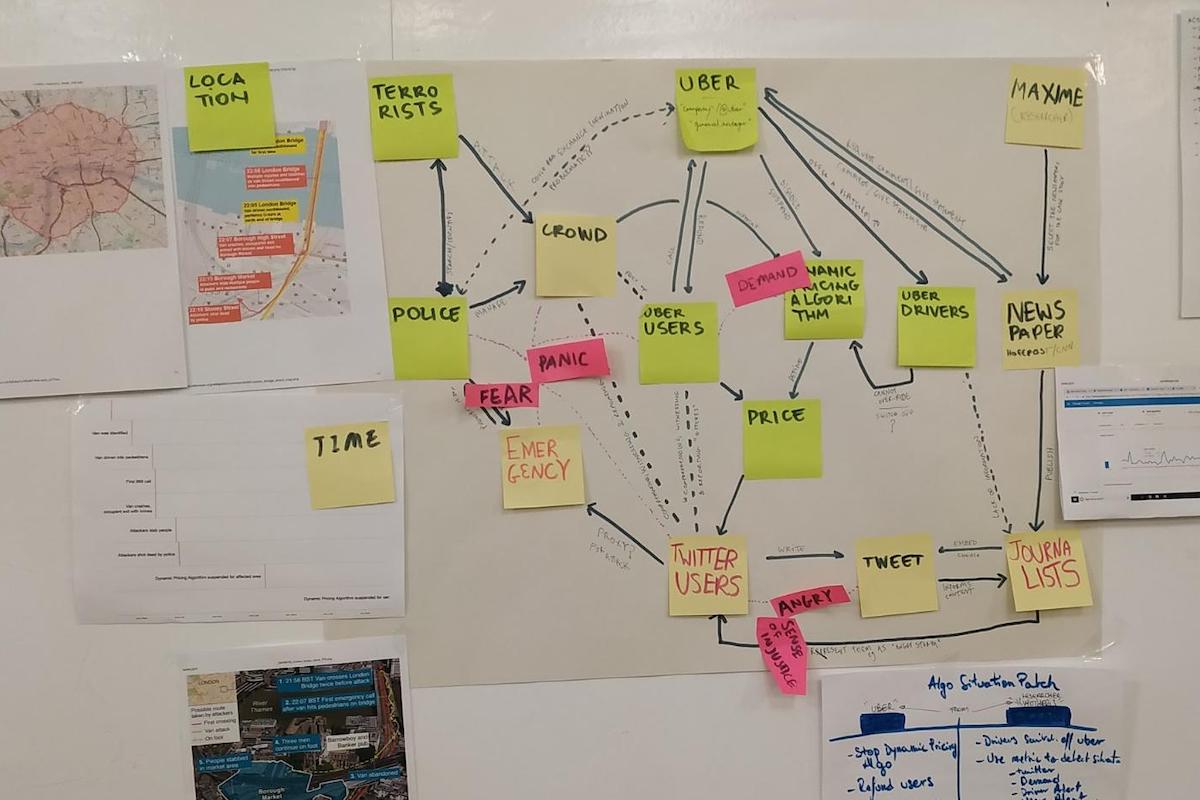
A Field Guide to Algorithms
What are algorithms? Who and what do they involve? What do they do? What is at stake with them? How can we account for them? How can we respond to them? Following on from the Field Guide to “Fake News”, A Field Guide To Algorithms aims to gather and curate different starting points, recipes, approaches, experiments […]
-

Mapping the IPCC SR15 Report on YouTube
This project explores online responses and activity associated with the IPCC Special Report on Global Warming of 1.5°C (SR15) on YouTube following its release in October 2018. The results can be found in the following paper:Bounegru, L., De Pryck, K., Venturini, T., & Mauri, M. (2020). “We only have 12 years”: YouTube and the IPCC report on […]
-

Atmospheres of Denial
This project explores digital cultures of climate change denial in collaboration with DeSmog and taking their Global Warming Disinformation Database as a starting point. Image from “engaged research-led teaching” project undertaken with DeSmog, researchers and students at the Department of Digital Humanities, King’s College London.
-

Assembling a Global Database on Corporate Taxation
This project explores the assembly of a global, open-source database on the economic activities and tax contributions of multinational corporations. In particular it examines how prototyping may serve as a speculative method to not only gather information from diverse sources, but also to engage with organisations, groups and communities who are concerned or affected by […]
-
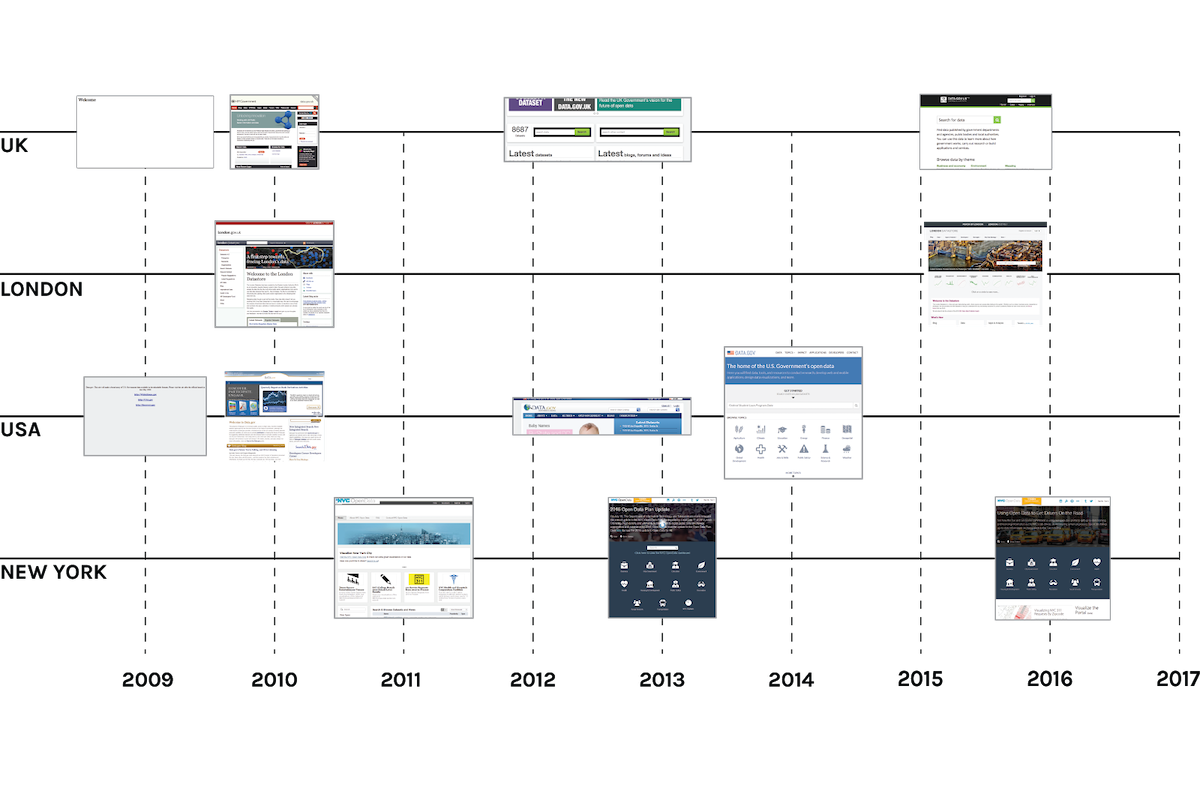
Field Guide to Public Data Projects
The United Nations has suggested the need for a “data revolution” to address urgent transnational issues such as climate change and inequality. It has endorsed not only improving national statistical data collection, but also opening public sector data up for broader societal re-use, as well as exploring the capacities of emerging forms of digital data, […]
-

Out of the Flames: Mapping the Politics of #AmazonFires
A collaboration with the European Forest Institute to explore forest governance and the changing role of forests in society according to web and social media data. The project explores how the 2019 Amazon forest fires were addressed and accounted for through a series of analyses using online data from digital platforms including Twitter, Facebook, Google, […]
-
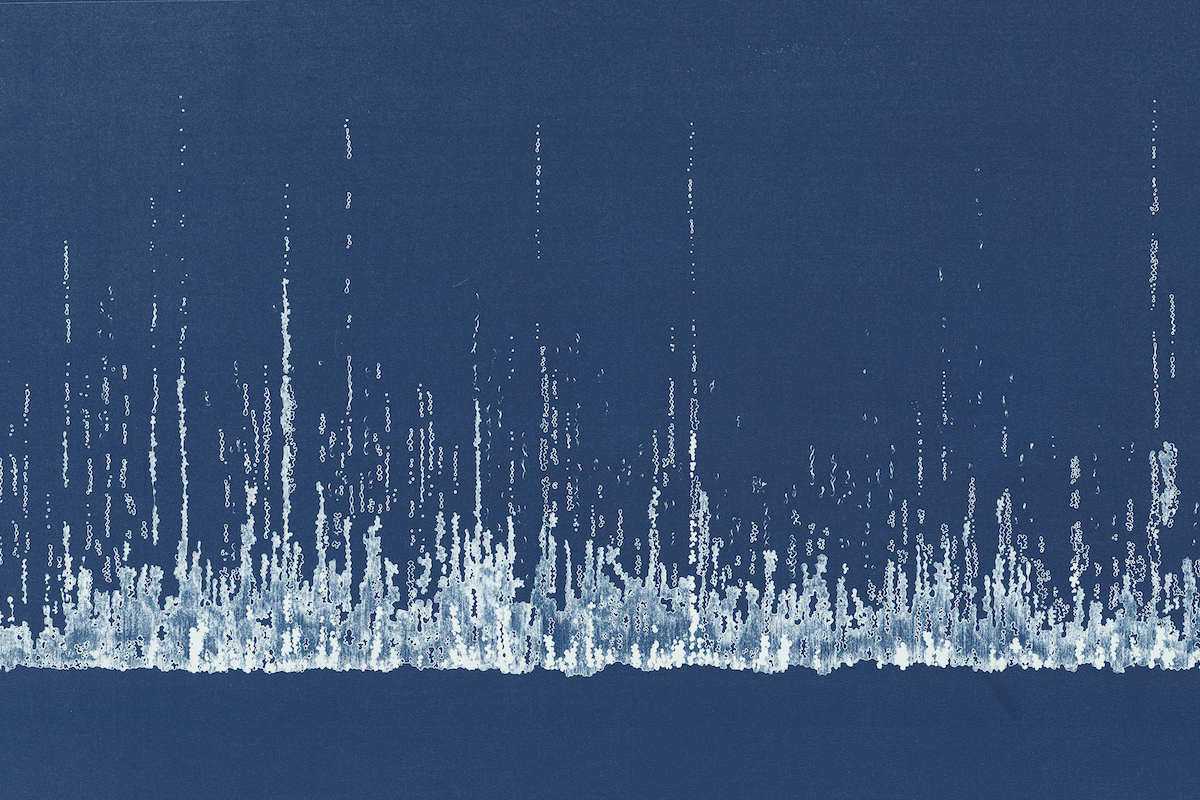
Ways of Listening to Forests
How can we sense and make sense of forests with devices, techniques and our bodies? How might we cultivate an interdisciplinary “arts of noticing” (Tsing) for attending to forests and their role in critical zones? Engaging with themes in the Critical Zones exhibition and catalogue curated by Bruno Latour and Peter Weibel, this project explores different ways of listening to forests, drawing […]
-

Infrastructuring the Lab
How does the Public Data Lab operate? How does it engage with various actors, groups and publics? What kinds of infrastructures does it need in place in order to supports its activities? This project involves supporting and taking caring of the means through which the Public Data Lab and its projects and collaborations are materially […]
-
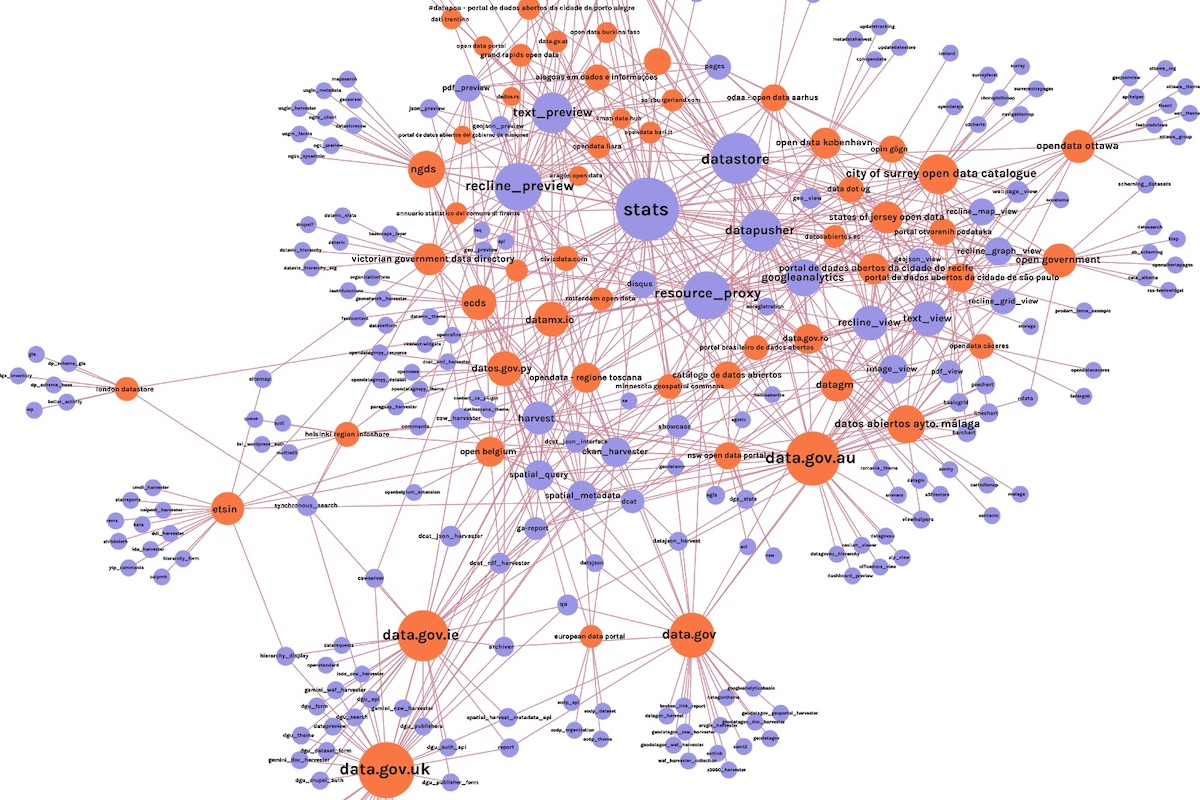
Data Portal Explorer
What do data portals do? This initiative explores digital methods and approaches for studying data portals as online devices. This includes gathering an international research group on data portal studies, as well as developing a prototype tool and open source software library for repurposing data portal metadata in order to examine public sector datafication and […]
-

COVID-19 Testing Situations on Twitter
A new challenge that the COVID-19 pandemic has ignited is testing – and not testing – for the virus, as a central concern among the population. Much of the debate has focused on the merits of different types of tests and testing infrastructures (PCR; anti-body; symptom-based testing through apps). However, equally remarkable about COVID testing […]
-

What Can Citizen Generated Data Do?
A research initiative to map and explore what “citizen-generated data” can do, with a particular focus on the UN Sustainable Development Goals. Led by the Public Data Lab, King’s College London, the médialab at Sciences Po and Open Knowledge International in collaboration with the Global Partnership for Sustainable Development Data and the UN Foundation. Further details can be found at this blog post and […]
-
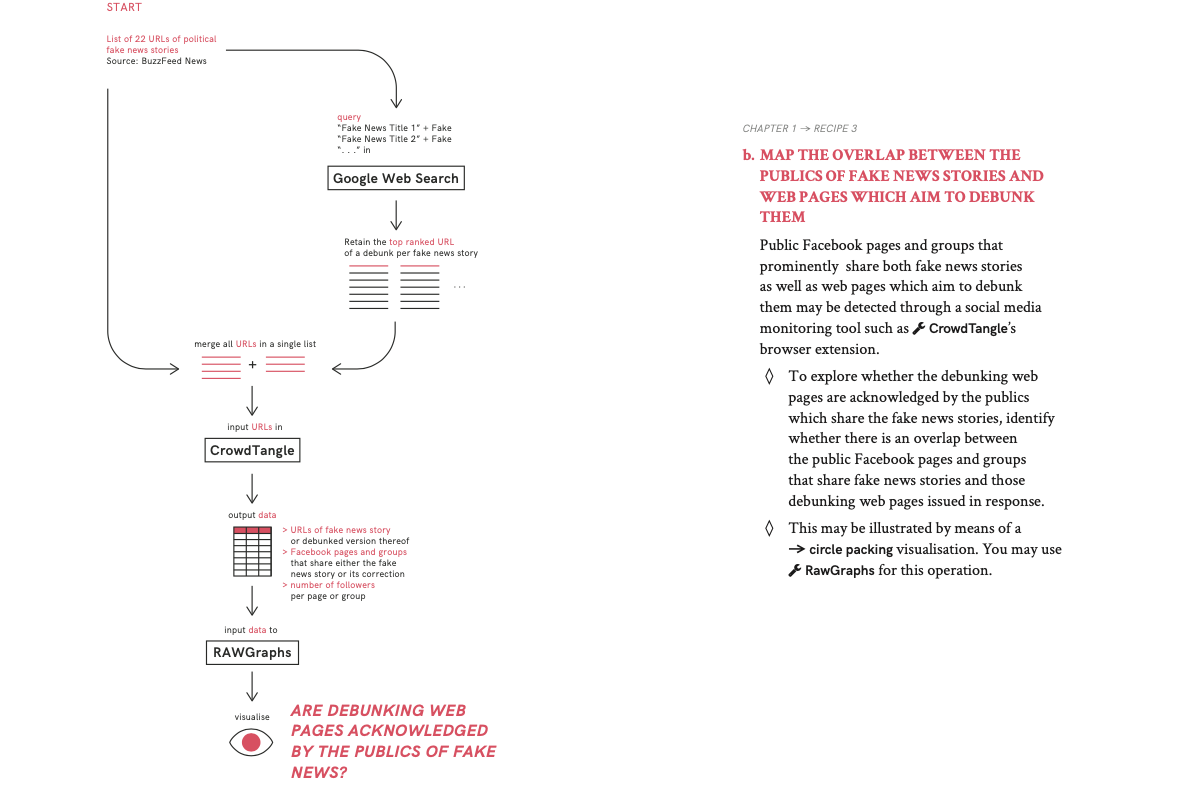
Digital Methods Recipes
How can we share different ways of doing things with digital data, methods and infrastructures? How can text, images, video, GIFs and other materials be used to provide accounts of digital methods, cultivate sensibilities towards interpretive work, surface tacit knowledge and encourage reflection on decisions, tools, devices, assumptions and materials? This is a project to […]
-

Investigating Infodemic
Responding to the World Health Organisation’s warning that misinformation related to COVID-19 constitutes an “infodemic,” this project studies conspiracy theories as a particularly seductive kind of misinformation. Infodemic: Combatting COVID-19 Conspiracy Theories is using methods from digital humanities and cultural studies to understand how and why conspiracy narratives circulate in different platforms and online spaces […]
-

The Fog of Finance
As part of this project we created an “Atlas of Offshore FDI” exploring financial relations between states through the flows of money from foreign direct investment (FDI). Its specificity is the effort to visualize the combinations and modifications of the flows of money for making sense of transnational economic activity as well as visual practices […]
-
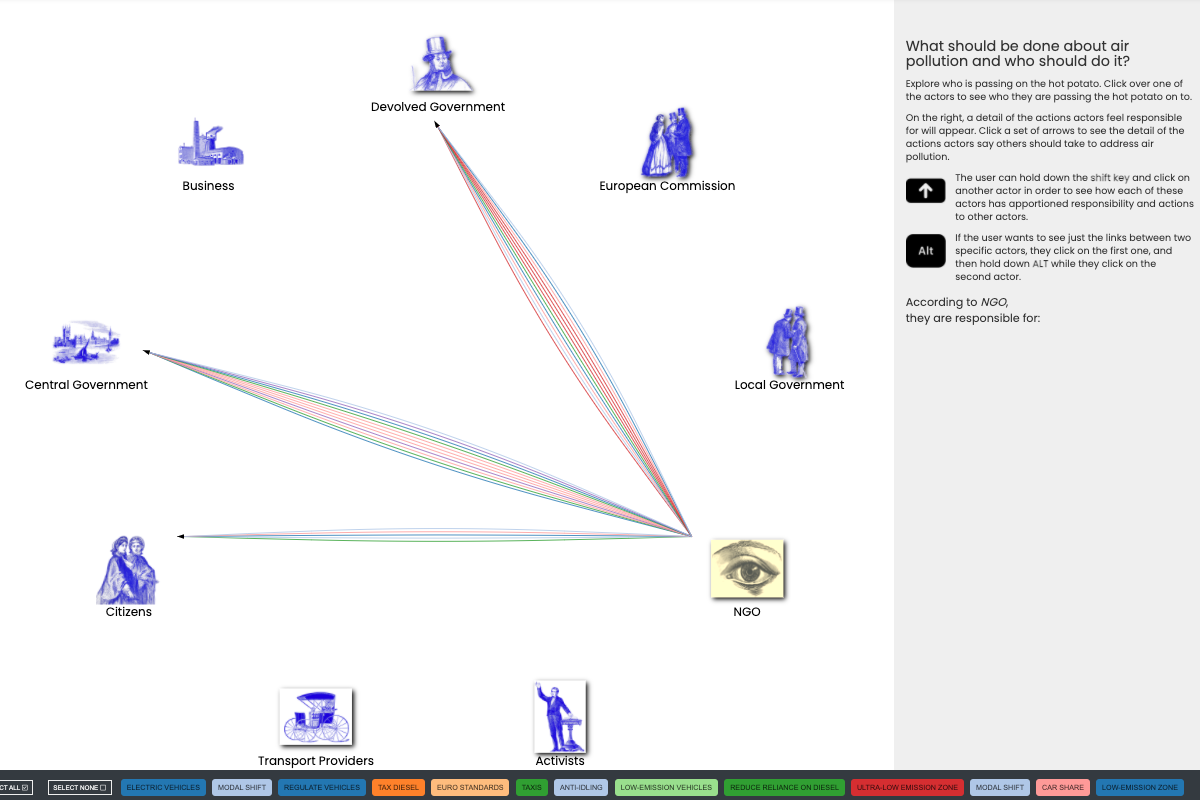
Save Our Air
Supported by OrganiCity and developed by the Public Data Lab, SaveOurAir is an exploration of the social and political aspects of “smart cities”. Its specificity is the effort to use digital data to stir (rather than settle) urban debate and to nurture (rather than purify) their multiple attachments. Focussing on air quality, SaveOurAir explored three ways […]
-
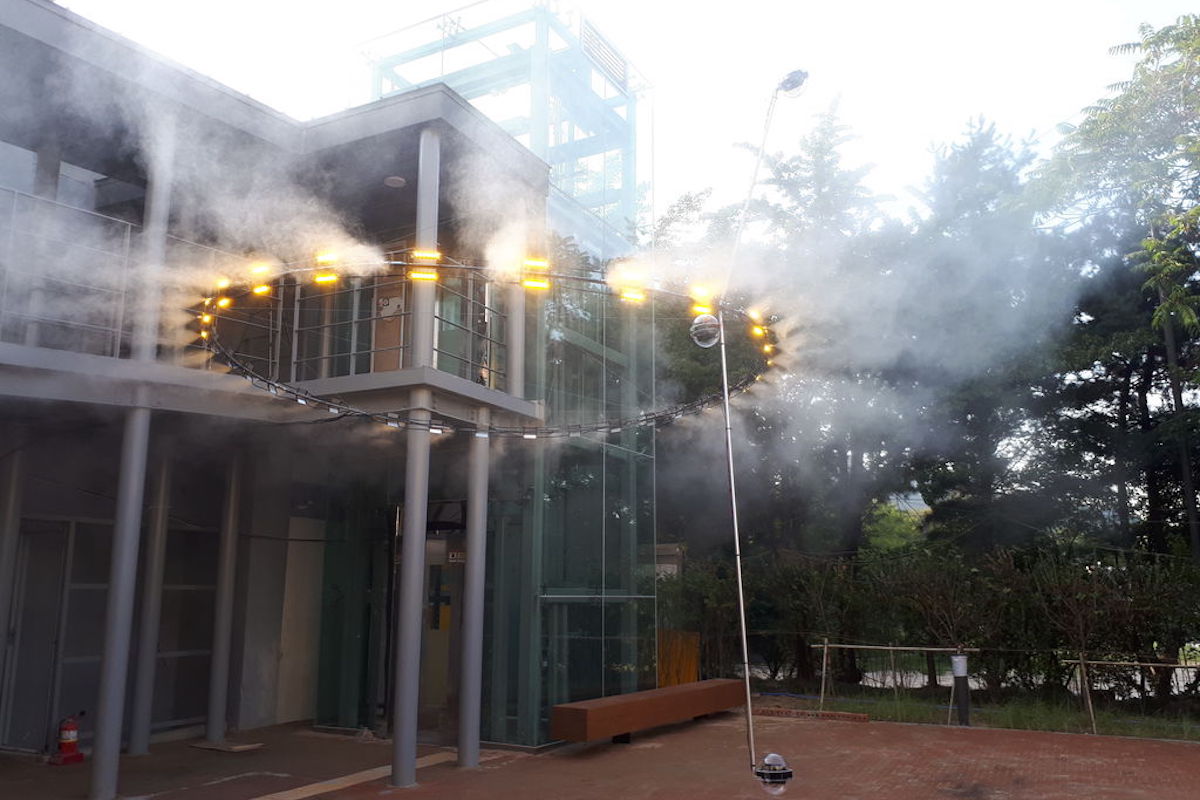
Organising Participation with Air Pollution Data
How can air pollution sensors be used by various actors for public purposes beyond scientific measurement and policy management? This project explores how air pollution devices and data can be used to facilitate and organise public participation around the issue of air pollution in various ways, from gathering publics to inviting action to inventive performances. […]
-
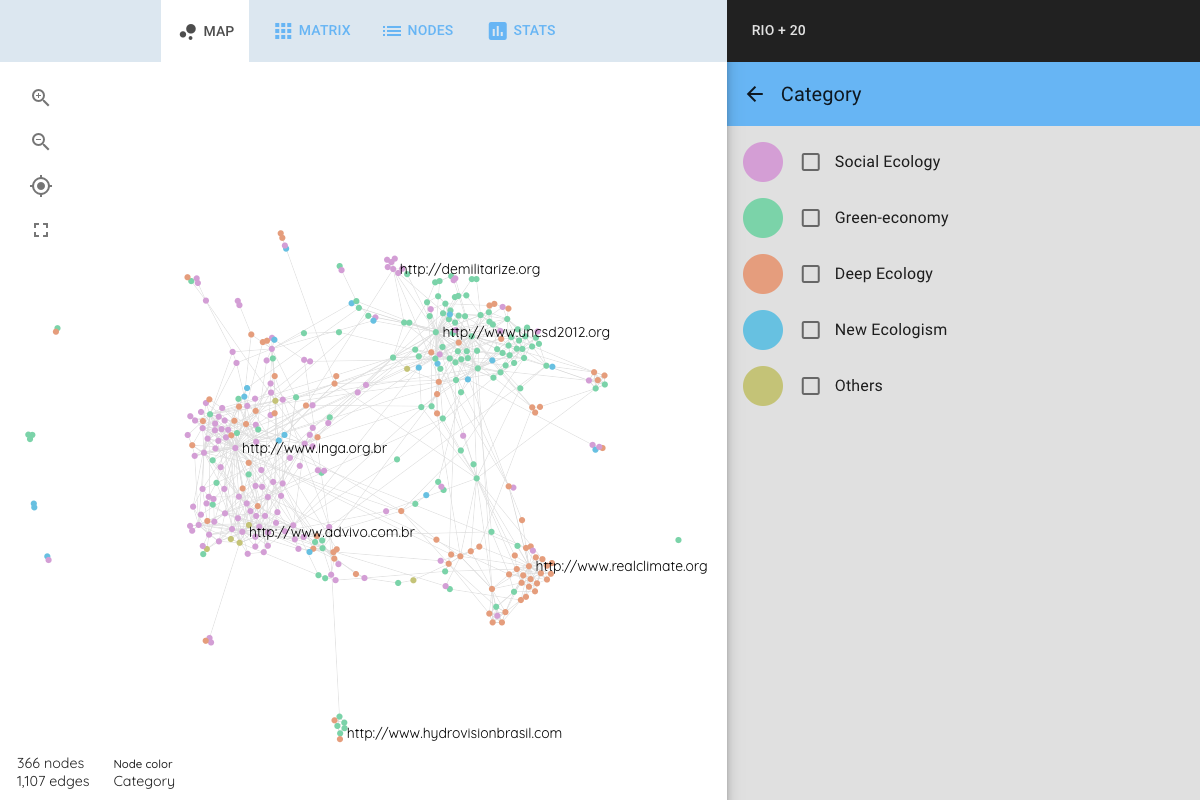
MiniVAN
Networks are increasingly popular in the social sciences and in the humanities as interfaces for exploratory data analysis. “Visual Networks Analysis” (or VNA) allows scholars to analyse large relational datasets without having to deal with the full complexity of graph mathematics. Current VNA tools, however, are either too complicated or unable to handle large datasets. […]
-

The Data Journalism Handbook
The Data Journalism Handbook: Towards a Critical Data Practice (Amsterdam University Press, 2021) provides a rich and panoramic introduction to data journalism, combining both critical reflection and practical insight. It offers a diverse collection of perspectives on how data journalism is done around the world and the broader consequences of datafication in the news, serving […]
-
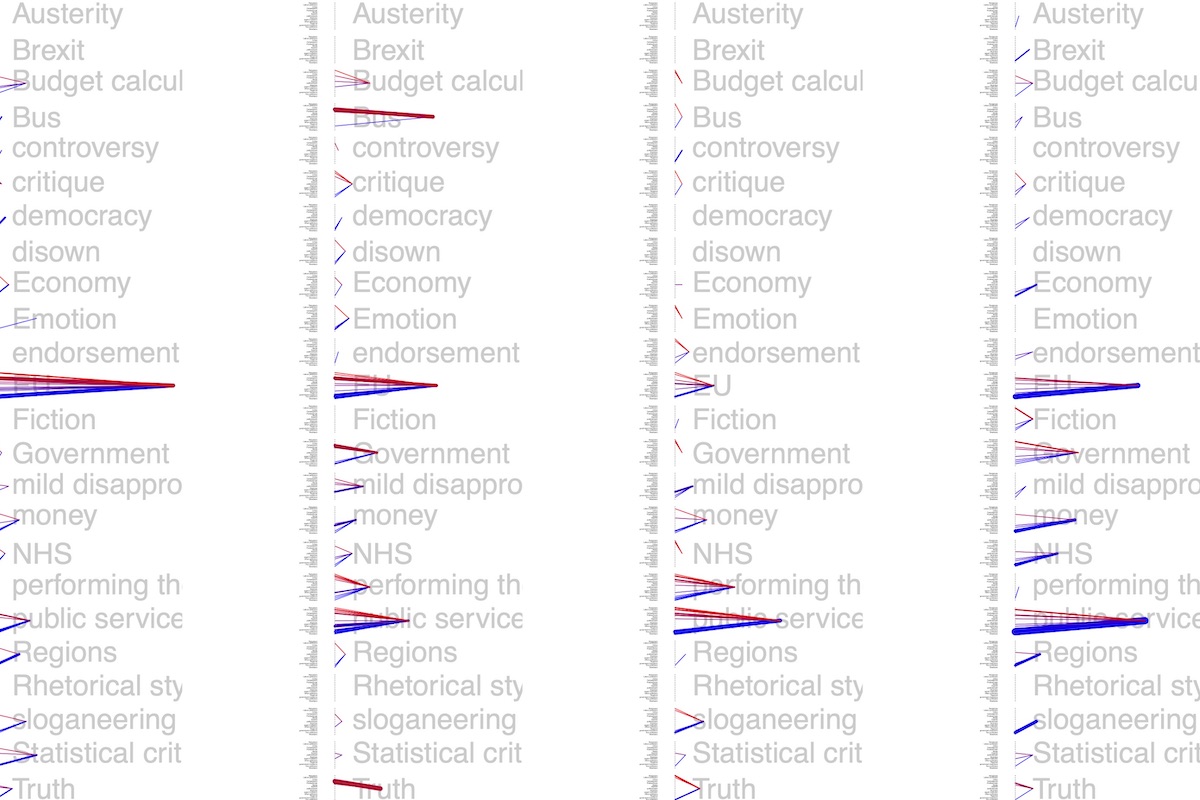
Tracing Public Facts
Prompted by Noortje Marres’s article “Why We Can’t Have Our Facts Back” this project explores different approaches for tracing and narrating “public facts” online. Some explorations from a workshop on “A Digital Test of the News: Checking the Web for Public Facts” can be found here.
-

A Field Guide to “Fake News”
A Field Guide to “Fake News” and Other Information Disorders explores the use of digital methods to study false viral news, political memes, trolling practices and their social life online. It responds to an increasing demand for understanding the interplay between digital platforms, misleading information, propaganda and viral content practices, and their influence on politics and […]